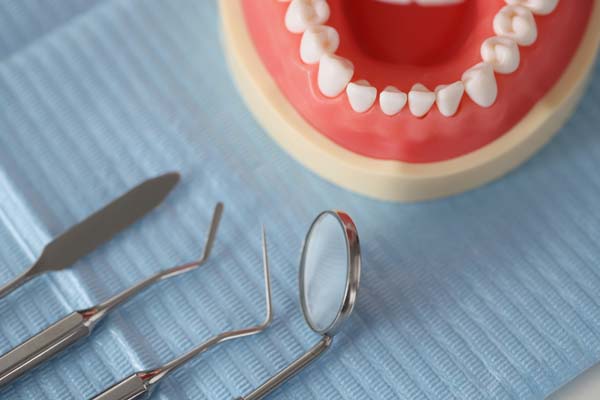Adjusting to New Dentures: The Best Methods for Your New Smile

If you have recently replaced a mouthful of teeth, you are probably adjusting to new dentures. Although dentures greatly improve your smile, this does not mean you immediately become used to wearing them. The good news is there are methods you can use to help adjust, and in about a month, your dentures should start feeling normal.
Methods for adjusting to new dentures
Do not be alarmed if it feels like you have a foreign object in your mouth after you first get dentures. This is normal, and it takes some time to get used to them. This transition process often goes a bit quicker if you follow certain tips.
Manage discomfort
You need to get used to wearing dentures, but your gums and soft tissues in the mouth also must adapt. Immediately after placing the dentures, your dentist will make any necessary adjustments for fit. However, you may still notice some discomfort over the next couple of weeks.
The dentist may recommend that you take the dentures out occasionally to give your gums a break. If sores develop on the gums, rinse with salt water to ease the pain and keep them clean. Over-the-counter pain relievers may also help if you have swelling or discomfort.
As your jaw settles and the gums heal, your dentures will probably require additional adjustments. Your dentist will take care of this as necessary for your comfort and a proper fit.
Train your cheeks
Your cheek muscles assist in talking and eating, and those two tasks become a little easier if you exercise the muscles. You can get a head start by beginning the exercises before you get your new dentures. The process is easy: All you need to do is smile really wide and hold it for about 20 seconds. You should do this four or five times daily.
Practice speaking
When it comes to adjusting to new dentures, speaking can be a challenge. Talking may feel awkward, and certain sounds are sometimes hard to pronounce at first. Make sure you use the right dental adhesive to help to keep the dentures in place.
Practice speaking out loud at home before talking in front of anyone else. It may help to bite down gently and then swallow before speaking. Talking in front of a mirror and singing are also helpful.
Alter your diet
Eating is also difficult at first. In the beginning, select soft foods for meals, such as yogurt, mashed potatoes, soft pasta, mashed bananas, and scrambled eggs, since they are gentle on your gums and help you get used to eating with dentures. You should chew slowly and take small bites. To avoid damaging the dentures, refrain from crunchy, hard, and sticky foods.
Conclusion
Although adjusting to new dentures is not fun, it is worth it to have a new and improved smile. Ease into wearing them and practice the more challenging tasks so you can utilize them with confidence.
Request an appointment here: https://saluddentalgroupnm.com or call Salud Dental Group at (505) 608-7517 for an appointment in our Albuquerque office.
Check out what others are saying about our dental services on Yelp: Adjusting to New Dentures in Albuquerque, NM.
Related Posts
Anyone considering dental veneers should understand the details of how they work to help determine if they are candidates. These thin, shell-like pieces are a cosmetic dentistry treatment that enhances the overall appearance of the teeth. Here are the various ways that general dentists utilize veneers for their patients.Veneers are thin porcelain shells that a…
If a lost tooth is not replaced by replacement options like dental implants, you may find normal oral functions like eating and speaking somewhat challenging. The smile’s alignment and appearance will also be affected, but that is not all. Tooth loss causes bone deterioration. Dental implants can halt the progression of bone loss, but the…
A family dentist may have suggested getting dental sealants during your last appointment. With tooth decay being the most common oral issue in children between the ages of six and 19, according to the CDC, dental sealants provide extra protection for the teeth to prevent its occurrence and resulting dental problems. This article explains why…
A root canal is a dental technique devised to treat infection or damage within the pulp (the innermost chamber) of the tooth. While the procedure has a reputation for being painful, thanks to anesthetics, it is often no more uncomfortable than getting a filling.While there is no recovery period after getting a root canal, proper…
